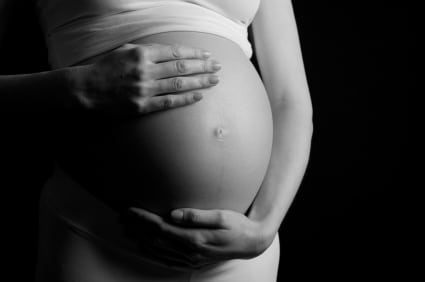Many women are waiting to have children these days; they want to get their careers secured, or find the right person to have a family with, or maybe they want to develop the kinds of relationships they feel they need to help them raise a baby. Unfortunately, waiting too long can leave a hopeful would-be mother childless . . . and in vitro fertilization isn’t a sure thing.
To help women family plan more effectively, scientists have analyzed fertility data on more than 58,000 women. They then took that information and created a chart that could help women decide when they should start conceiving in order to achieve the family size they want. It also highlights how IVF may not give them the family they want—or any children, for that matter—if they put off child-rearing for too long.
“We haven’t got a time machine we can put people in . . . that’s just a blunt reality,” Professor Allan Pacey, a Sheffield University expert, told Daily Mail. “Everyone thinks you can wait – this shows you can’t.”
To use the fertility calculator, all a woman has to do is decide how many children she wants and whether she’s going to try and conceive naturally or with IVF. The table will then tell her at what age she should start trying to conceive for a 90 percent, 75 percent, or 50 percent chance of success of achieving her family-size goal.
For example, if a woman wants three children, she has a 90 percent chance of having that many children if she starts trying to conceive by the age of 23. If, however, she waits until she is 31, her odds fall to 75 percent. If she waits until 35, her odds drop to just 50 percent. More importantly, the chart shows that, realistically, IVF only gives her another year or two to achieve her goal.
For some, the idea of having children at 23 may seem impossible, especially in countries like the United States. Childcare is expensive, there are very few incentives offered to help parents, and most that do exist are only within certain companies like Google or Facebook. To make matters even more complicated, women who have children younger typically make less money than those who wait.
“Women who have children in their 20s are more likely to achieve their desired family size but can also expect lower lifetime earnings than women who start later,” Professor Balen told New Scientist. “Couples need support so they can start their families early . . . We need to ensure women aren’t disadvantaged at work and sort the lack of childcare facilities so we can enable young people to establish their careers and families at the same time.”
Related Articles:
- Same Sex American Couple Stuck in Thailand over Surrogate Baby Custody Battle
- Childbirth Costs Vary Widely in U.S. Hospitals
- 8 Ways to Prepare Your Child for a New Sibling







